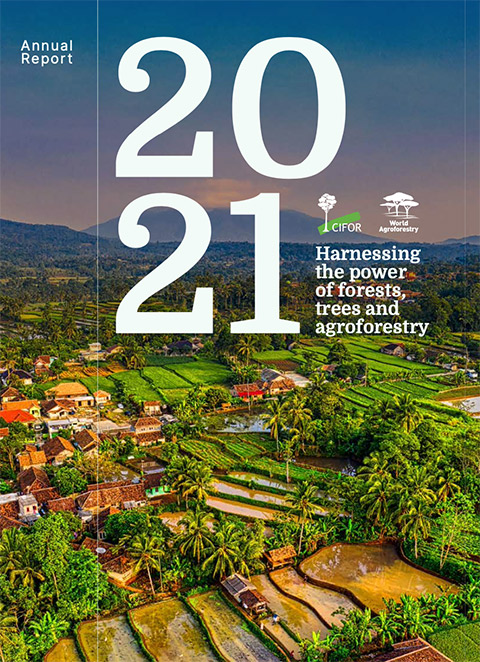Our planet and the people who live on it are in the midst of a perfect storm of five interconnected global challenges: deforestation and biodiversity loss, climate change, dysfunctional food systems, unsustainable supply and value chains, and inequality. Because each crisis affects the others, solving them requires whole-system responses that consider how all people are affected and the environment is impacted over time.
Transdisciplinary science at CIFOR-ICRAF not only delivers holistic solutions but also ensures their relevance to national programmes and local communities, as shown throughout this report. By supporting local innovation rather than helicoptering in solutions from outside, we embrace cutting-edge science while working hand in hand with global, national and local communities to co-create and scale solutions that meet their needs.
We operate transformative research. For example, we seek not only to understand how gender inequity compromises sustainable development, but also to shift power asymmetries to create a more equitable future for both men and women.
—Fergus Sinclair, Chief Scientist

Our way of working
CIFOR-ICRAF is focused on contributing to a decisive shift in global trajectories: from a future of environmental destruction and livelihood crises to one of prosperity and planetary health. Uniquely equipped to deliver transformative research, we harness the power of science and innovation to improve the benefits that forests, trees, soils and their sustainable management can provide to all humankind,for a more resilient, equitable and prosperous future. Our work is aligned with the Sustainable Development Goals and the Paris Agreement, as well as the three Rio Conventions.
We continue to implement our 10-year strategy (2020-2030), working across five broad themes: Trees and forest genetic resources and biodiversity; Climate change, energy and low-carbon development;Soil and land health; Sustainable value chains and investments; and Governance, equity and well-being.
CIFOR and ICRAF are members of CGIAR, a global research partnership for a food-secure future.
In this report, find out what CIFOR-ICRAF is doing to create:
Our innovations
CIFOR-ICRAF delivers game-changing solutions to global and national challenges through three innovative approaches that are catalysing a positive shift in research for development across Africa, Asia and Latin America:
Transformative Partnership Platforms – alliances focused on critically important challenges
Engagement Landscapes – geographic locations where we carry out concentrated, long-term transformative work with diverse and committed partners
Flagship Products – initiatives that provide action-oriented insights into key global issues
Find specific examples of these innovations throughout this report.
Our network
The entities of the CIFOR-ICRAF network reinforce and advance our shared aim to unlock the potential of trees and forests to combat climate change, biodiversity loss and land degradation.
Our work is possible thanks to the generous support and collaboration of our 150 funding partners and 88 strategic partners. View the complete list at: cifor-icraf.org/partners

